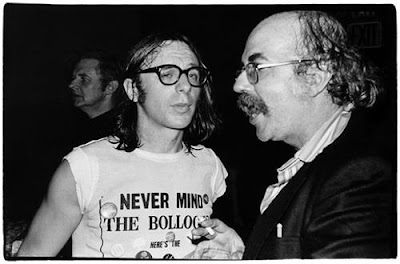Astral Weeks' gestation spanned two years and occurred on two continents. In Belfast, following the recording of
Blowin' Your Mind!, Van Morrison retreated to his bedroom in his parents' Hyndford Street home, strumming his acoustic guitar long into the night, singing into his reel-to-reel tape recorder, "improvising until he hit a rich seam." But it was in Boston, at a club named the Catacombs, where
Astral Weeks truly burst into color, where a rough gemstone was precisely polished.
Joined by a pair of musicians from the nearby Berklee College of Music, upright bassist Tom Kielbania and flautist/saxophonist John Payne, Morrison took up a short residency at the Catacombs (the trio's run of shows likely lasted just a few weeks). Said Payne: "That was probably some of the best playing I ever did with him because it was still that moment of first discovery." Morrison spoke of similar exploratory thrills: "I just wanted to break away from this kind of structured thing at that point ... I just wanted to get back to playing and singing really, so it was like getting rid of everything and starting again. It was just guitar, voice, and singing the songs. So
Astral Weeks came out of this desire to break out of this rigidity, to extend the lines and chop it up."
This is from a review of a Morrison/Kielbania/Payne gig at the Catacombs. The writer is
Eric Kraft:
He makes his way to the stage at the Catacombs, joining Bob Kilbania [sic], who plays upright bass, and flutist John Payne, who is trying for a spot in the tour group. He gets his guitar tuned, carefully adjusts the mike placement, brows knit, anxious that everything be right. He begins with "Cyprus Avenue." He's so involved with it, so into it, that you have the feeling you're involved in a very intimate communication with him. He winces and strains to bring the song up from far within him, producing at times a strangely distant sound that carries a lyrics of loss and disillusionment. He sings with great care, making certain none of the lyrics, none of the tone and intonation are lost to the audience. He is a performist beautiful to watch in his absorption. He had total control over the number and, by now, over most of the audience as well.
Information on the Catabombs is scarce. The address was 1120 Boylston Street in Boston, a 60-second walk from Berklee. Scouring for information on the club, I received this email reply from Harry Sandler, co-founder of
the Music Museum of New England and one-time drummer for the band
Orpheus:
It was on the corner of Hemingway [Hemenway] and Boylston Street and down three flights of stairs under a pizza parlor. Very dark, dirty. I think there was a pool hall there too. I played there a number of times with Jonathan Richman as my opening.
The pizza parlor Sandler mentions is
Little Steve's Pizzeria, which is located at 1114 Boylston Street.




